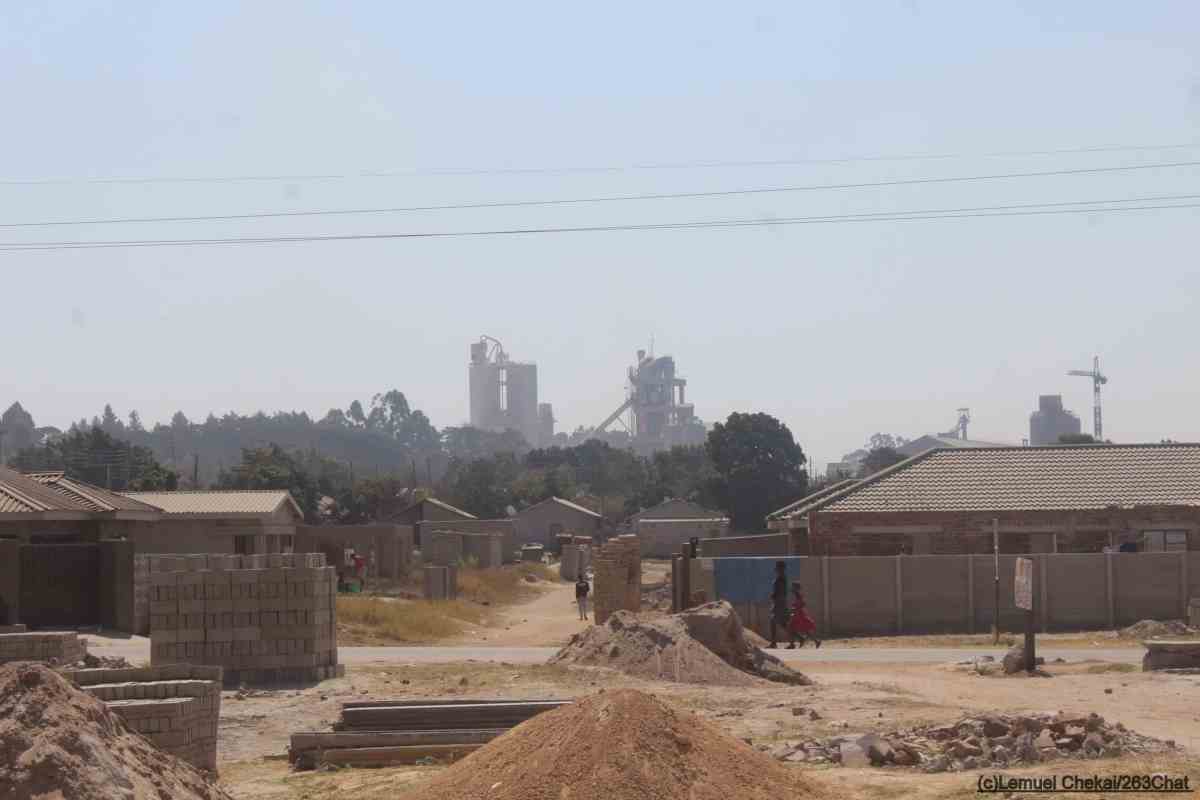
Rumbling noises from metal objects hitting against each other inside moving haulage trucks signal the terrible state of road infrastructure along the main stretch adjacent to Lafarge Zimbabwe’s cement making plant in Mabvuku.
A few weeks ago, the cement maker had been ordered to stop operations by the Environmental Management Agency (EMA) following an appeal for intervention by residents over excessive emissions at the plant.
Though in its nature cement manufacturing is characterized by dust emission as the process involves pulverizing of stones, the permissible levels of emission, according to EMA, is anything within 90 milligrams per cubic metre.
Despite the visible decline of air pollution witnessed during a recent media tour by the Zimbabwean Union of Journalist (ZUJ), locals are still riled by the corporation’s significant failure to contribute to community development.
Considering that a majority of heavy vehicles frequenting the area will be bound for Lafarge’s premises, Mabvuku-Tafara Member of Parliament (MP), James Chidhakwa, thinks the terrible road state exposes “little to no corporate-social responsibility” by the giant cement maker
“The least they could have done is apply concrete, a product of theirs, to cover potholes right by their doorstep,” Chidhakwa says.
“If something this small is proving a tough task, what of community development projects we expect them to conduct in this community?”
For Mabvuku’s small business entities specializing in precast concrete products, turning to Lafarge’s competition, Pretoria Portland Cement (PPC), for supply despite proximity to the former is an effective form of protest against the perceived malpractices.
“We do not have any form of engagement with Lafarge and in all honesty, speaking for myself, I don’t recall the last time we received support from them,” Timothy Jumbe a precast concrete products business owner said.
He added, “To this end, it is why we seem to lean towards PPC’s Surecast which is a lot more affordable for us if compared to Lafarge supplied cement. ”
Like most old high-density suburbs that are jammed with poor road infrastructure, terrible water and sewer reticulation systems, Mabvuku is not an exception.
However, at the heart of these woes is water scarcity, a challenge the neighbourhood has been grappling with for decades, and according to Lafarge communications manager Tsungi Manyeza their company has incessantly tried to address this.
“In 2018 the company supported the rehabilitation of eight boreholes around Mabvuku and this alleviated the water challenges in the community and also eased pressure on the other boreholes,” Manyeza said.
However, blurred handling of such projects has made whatever initiative the cement maker has carried out in the community go unnoticed if Chidhakwa’s words are anything to go by.
“The question is not, is it good enough, instead, it should be, are they even doing it. I’m not even aware of what she (Manyeza) is claiming as this community’s leader. Meetings I often conduct with residents raise totally different issues to their claims,” he said.
Visible contrasts between former owners of the plant, Circle Cement, and the incumbent have also to an extent reduced the little of Lafarge’s effort to nothing.
Under Circle Cement, Mabvuku residents would often receive milk portions in a show of penitence to the environmentally toxic practices at the plant.
The extension and maintenance of Mabvuku Sporting Facility by Circle Cement was also icing to an already healthy relationship between the parties.
Currently, Mabvuku Sporting Facility is in shambles with immediate renovation work required on the precast concrete security walls.








